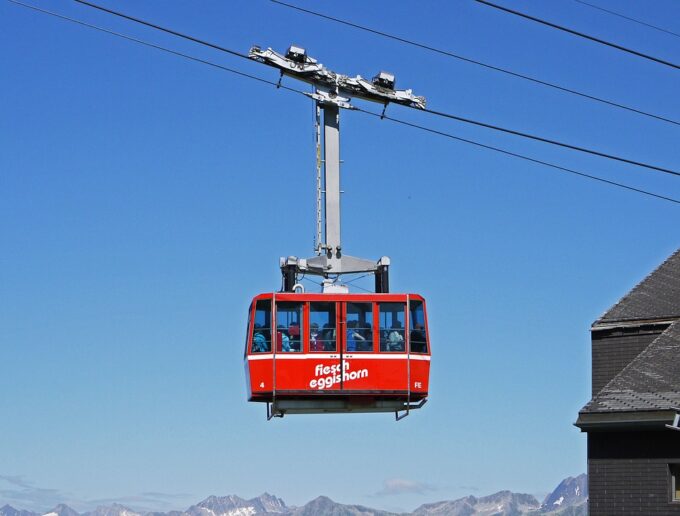On the trail of Sars-CoV-2 in cable cars
Where do the greatest dangers of infection lurk? How can you protect yourself and others even better? Scientists around the world are working to expand knowledge about Covid-19 - including at Empa. Using measurements and simulations, researchers are now taking a close look at gondolas and cable car cabins in ski resorts.

Covid-19 is difficult to estimate, and complex mathematical models that quantify infection risks are ultimately attempts to approximate reality - even in the case of ski resorts and the many people who cavort there. That's why the team led by Ivan Lunati of Empa's Multiscale Studies in Building Physics department began its work precisely in this reality: in cable car cabins and gondolas of the Engelberg-Trübsee-Titlis (BET) mountain railroads.
Fewer passengers = lower risk
But what about the emission rate of pathogens? A tricky point, says Lunati, because some of the properties of Sars-CoV-2 are still unclear. Moreover, the emission rate is known to depend on the behavior of an infected person. Does he breathe calmly, or is he so strained from skiing that he snorts violently? Does he laugh, speak - and if so, loudly or softly? According to Lunati, good data on this is currently scarce. In addition, the physics of how droplets and aerosols spread in a room are not fully understood.
What concrete recommendations can be derived from the study? In addition to the obvious advice of "Please ventilate!" it is also worth limiting the number of passengers per trip. "This is already done in ski resorts anyway and is definitely the right strategy," says Lunati.
Cough in the sights of science
Talks about cooperation are already underway with the cable car manufacturer CWA in Olten, which has been following and supporting the research. "The subject of air exchange has so far been treated rather stepmotherly," says Massimo Ratti. Data like that from Empa, says the "Chief Technical Officer" of CWA, would be really helpful - not only in the current situation, but also with a view to future ropeways in public transport. After all, the demands there are even higher than in ski resorts, explains the expert: "We would be very interested in taking part in a research project for cabins with even better air circulation."
In the future, Empa researchers also want to improve the data basis for the emission of viruses - with a "cough machine" that they have developed in their laboratory. From two cylinders, comparable to lungs, special compressed air enters a "head" via hoses: heated to body temperature, enriched with moisture and droplets, the spread of which is then recorded by two cameras - also suitable for tests of future protective masks.
Source: Empa









